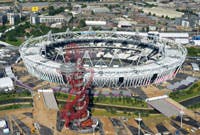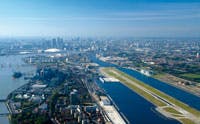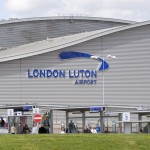Olympics analysis: More of a stream than a surge

Despite predictions of significant increases to private jet movements during the London 2012 Olympics, industry sources are agreed that the volumes were not as great as expected. There were certainly more planes in the air than usual, but movements are expected to be confirmed as around 25% down on predicted levels. However it was still a great opportunity for private jet charter to showcase its efficiency.
The industry was ready and waiting for a major Olympic surge in traffic, but in fact it was more of a gentle stream. All London Airports had spare capacity for private jets during the Games, including London City Airport, just minutes from the Olympic Park.
Air Traffic Control figures will show an increase on usual levels, but not to extent many expected. At PrivateFly.com we saw a 40% increase in bookings during the period but a significant amount were from Londoners escaping the games. A large proportion of the extra Olympic traffic also came from corporates outside of Europe, using their own privately owned aircraft – such as the Coca Cola fleet.

Private jet traffic was not scared away from London; the predicted high levels of demand were just not there in the first place. This was a Peoples’ Olympics, where athletes chose to travel by tube not limo, and the private jet traveller chose business class. Ironically, with the worlds’ eyes on London’s airports, the delays and inconveniences of airline travel were less of an issue than they usually are.
In terms of logistics, the London Olympic Air Traffic ‘Atlas Control’ process worked well and significant delays were not incurred. Security disruption was also minimal, with most pilots commenting that their flights were not affected at all by the extra Olympic security procedures. And customer service levels were exceptionally high at all London FBOs; as they were all effectively overmanned in expectation of higher volumes.
Despite the Games not living up to the private aviation charter market’s short term expectations, there will be longer term benefits to our sector:
- Increased leisure flights to London – now back on the map for international travelers, as the top vacation destination in Europe.
- Investment – London has been showcased as the city that delivers; despite the global recession and security threats.
- Airport awareness and access – The Games have highlighted the necessity of having multiple airports accessible to the business aviation community”.
The London Olympics put a key focus on long term sustainability and we should adopt the same view in private aviation. Despite demand falling short of expectations, our industry will move forward having learnt much from preparing for such a major international event.
Related content

Football fans club together for last minute private jets to Moscow

What’s the future for bizav at Luton?



